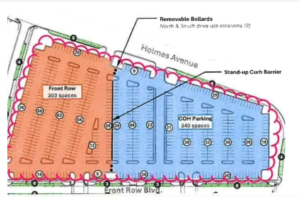Huntsville City Schools Board President Carlos Mathews says the district could lose $33 million in federal funding if the U.S. Department of Education shuts down.
Alabama offers no clear plan
During a town hall on Thursday, Mathews said Alabama leaders haven’t explained what would happen next. The concern comes after former President Donald Trump issued an executive order. That order tells Education Secretary Linda McMahon to start dismantling the department. Mathews stressed that schools need answers fast.
Federal funding powers core programs
Mathews explained that federal dollars support Title I programs, special education, and free lunch services. These funds also cover about 42 teaching jobs. He pointed out that Title I money helps schools with greater needs. It pays for reading coaches, reading specialists, and extra teachers. That support lets schools reduce class sizes for struggling students.
State control brings new concerns
Mathews worries about how the state will handle those funds. U.S. Rep. Dale Strong supports eliminating the department and returning funds to states. Mathews questioned whether districts will still get the money—and when. He said it’s unclear if the state would pass the funds down or keep them for other uses. Right now, the district can lean on its reserve funds if delays occur.
Local impact could be significant
Mathews also fears the state could remove current spending restrictions. Right now, federal dollars must go toward specific services. Without those rules, the state could use the money in other ways, like private school vouchers under the CHOOSE Act. That shift could drain resources from students who need extra help.
He said the school board is already exploring ways to cover teacher salaries with local money. At the town hall, retired teacher Walter Rice asked what the district might cut if federal support drops. Mathews said they’d protect services for students with special needs. Most extracurricular activities would continue because parents already fund many of them. Still, some classes might be removed to balance the budget.
Mathews added that the district’s capital funds—used for its $600 million, 10-year building plan—can’t go toward day-to-day costs. Local funding comes from property taxes and in-store sales tax. However, the district doesn’t receive money from online sales tax. Mathews wants to change that.
Sign up for the Homely Huntsville newsletter to stay up to date on Huntsville.













